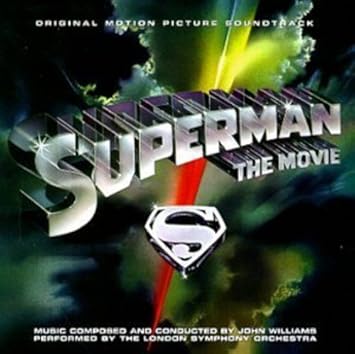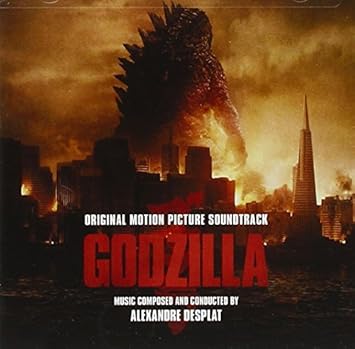
Composed by: John Williams
The most iconic superhero, in fact the one who jumpstarted the superhero genre, Superman was inevitably going to get a serious big-budged treatment. Superman, directed by Richard Donner, was the first serious adaptation of a comic book superhero to the big screen. Amazingly the film has little to no dramatic character development and no fight scenes. In fact, outside of being an origin story, it doesn’t have much of an over-arching story. It’s more like a big-screen compilation of Superman iconography, a chance to see comic book characters brought to life. I thought it was kind of boring when I first saw it, but have grown to really appreciate it, especially after the grimdark hatchet job Zack Snyder gave the franchise. My one great grip is a deus ex machina towards the end that breaks logic and tension. The movie’s success was engendered by a great cast and crew. On the cast end Christopher Reeve absolutely nailed Superman with his righteous charm, though I’m not a fan of his interpretation of Clark Kent as purposefully being an absolute bumbling fool to cover his alter ego. Gene Hackman had a fun take on Lex Luthor, while Marlon Brando provided a commanding reinterpretation of Superman’s biological father Jor-El. The crew end included some good special effects work, while John Williams, fresh off his monster success with Star Wars, provided another major film score. I will be reviewing his score mainly through the original double LP. This provided about 80 minutes of music, with the later CD release excising a couple tracks.
John Williams’ Superman March is one of the greatest superhero themes of all time. Actually, the Superman March is a merger of three themes and motifs for the hero. “Theme from Superman (Main Title)” starts with the main Superman theme. This fanfare has a build-up section followed by a three-note ascending motif that seems to sing “Superman.” After this theme Williams introduces a heroic rhythm that often plays in conjunction with the main theme during Superman’s flight scenes. The third theme is another theme that graces the main and ending titles. This theme has two components. The first is a fanfare (0:45). This fanfare also sounds like it’s singing “Superman.” Outside of the opening and closing titles this fanfare only appears fully during the helicopter rescue scene as Superman introduces himself to the world. On album the first part of the this theme appears at 1:46 in “Super Rescues.” The second component of this theme (1:17) has a more liberal presence throughout the underscore, but never as much as the main theme.



